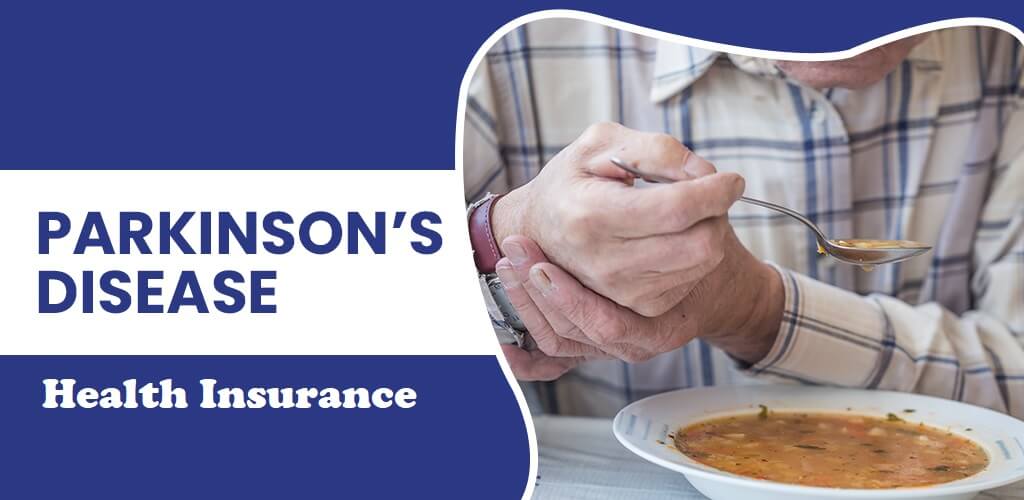Certain illnesses and medical conditions have the power to drastically alter your life. Parkinson’s disease, a central nervous system disorder, is one such health issue. Tremors and poor coordination are two of the main signs and symptoms of Parkinson’s. Although there is no cure for this medical condition, it can be controlled with consistent care. But this treatment comes at a hefty price.
Parkinson’s disease health insurance allows you to receive the necessary care without worrying about running out of money, so you can relax knowing that you have peace of mind. All you need to do is set aside modest amounts of money for the premiums associated with your health insurance, and your health insurance will take care of the rest.
Keeping this in mind, let’s examine Parkinson’s disease definition, treatment options, and the role health insurance plays in the condition.
What is Parkinson’s Disease?
Parkinson’s disease is a neurological condition that typically affects the brain’s nerve cells that produce the neurotransmitter dopamine. Generally speaking, this chemical controls how the body moves. Hence, progressive imbalance and incoordination may be symptoms of this condition. Thankfully, these symptoms are somewhat manageable with the right care.
In the early stages of Parkinson’s disease, your face might not exhibit any symptoms. The symptoms could manifest differently, though. For instance, you might find it difficult to swing your arms when you walk. You might start to speak slurred or muffled. Parkinson’s disease symptoms worsen over time as your illness progresses.
What are the multiple Parkinson’s Disease Stages?
The different stages of Parkinson’s Disease include;
- People usually only have minor symptoms that don’t interfere with their everyday activities. Tremors and associated abnormalities in the movement are limited to one-half of the body. Aside from posture, gait, and facial movements, there may be other changes.
- All of the body exhibits symptoms, including stiffness, tremors, and other issues with movement. Despite the longer and more difficult daily tasks, the person is capable of living alone.
- This is regarded as the middle stage. Loss of balance and lethargic gait are frequent symptoms. Even though they don’t incapacitate, these symptoms make it extremely difficult to perform daily activities like eating and dressing. Stage three also sees an increase in the frequency of falls.
- Severe and constrictive symptoms are present. People can stand without assistance, but they will most likely need a walker to get around. A patient needs someone to watch over them at this point and cannot be left to live alone.
- Leg stiffness can make it difficult to walk or stand. The individual is in a wheelchair or is bedridden. A person with Parkinson’s disease needs 24-hour professional care for everything they do, which is why insurance coverage is essential. At this point in the illness, the patient may experience delusions and mental disorientation.
What are the Different Types of Parkinson’s Disease?
There are different types of Parkinson’s disease.
Vascular Parkinsonism:
Those with cerebral cerebral ischemia have arteriosclerotic Parkinsonism, also known as vascular Parkinsonism. Sometimes people who have had a small stroke develop this kind of Parkinsonism.
Idiopathic Parkinson’s Disease:
The majority of people with Parkinsonism suffer from idiopathic Parkinson’s disease, also commonly known as Parkinson’s disease overall. Idiopathic refers to a disease that has an unknown cause.
Familial Parkinson’s:
Most cases of Parkinson’s disease are sporadic, meaning that a complex interplay of biological and ecological factors causes them to occur rather than being inherited. That being said, 10 to 15 percent of Parkinson’s cases are believed to be inherited. The genetic parents’ DNA mutations cause these familial Parkinson’s cases in their offspring.
Parkinson’s Caused By Medication:
A patient may develop Parkinson’s disease as a result of taking certain medications. Neuroleptic drugs, which interfere with the brain’s dopaminergic neurotransmitter and are used to treat schizophrenia and other psychotic disorders, are the most frequent cause of medication-induced Parkinsonism. Seldom do the symptoms of Parkinsonism brought on by medication progress in the same way as those of Parkinson’s disease. A tiny fraction of people develop drug-induced Parkinsonism, and most people recover completely within months of stopping their medication.
Early-onset Parkinson’s:
Usually affecting people between the ages of 21 and 40 or 50, young-onset Parkinson’s disease, also known as early-onset Parkinson’s disease, is a special kind of disease. The symptoms of idiopathic Parkinson’s disease are similar to those of early-onset Parkinson’s disease. They frequently get worse more slowly, though. Despite this, because patients are typically diagnosed when they are at the peak of their lives, symptoms usually have a more severe emotional and interpersonal impact.
Know the Parkinson’s Disease Symptoms
As of right now, the precise causes of Parkinson’s disease are unknown. However, it’s hypothesized that environmental and genetic factors could be to blame. The following list includes some of the typical signs and symptoms that people with Parkinson’s disease experience.
- Difficulty swallowing water and food.
- Trouble in expressing thoughts and emotions.
- Forgetfulness.
- Stiffness in muscles leads to difficulty in movement and body aches.
- Lethargic and jerky movements.
- Loss of smell.
- Instability in the body.
- Sleeping difficulties.
- Difficulty in controlling the bladder.
- Muscle coordination decreases as the brain stops sending the right signals to other body parts.
- Tiredness.
- Constipation.
- Trouble in sexual activities.
Benefits of Choosing Health Insurance for Parkinson’s Disease
The following are the incredible benefits of considering health insurance for Parkinson’s disease.
Emergencies:
There is no denying that health is as unpredictable as life itself, particularly when it comes to conditions like Parkinson’s disease. In addition, medical emergencies can happen at any time and wipe out a person’s life savings. Being prepared for anything is made possible in such a terrifying situation by having health insurance. You can unwind knowing you have the financial means to pay for the care you need.
Cashless Hospitalisation:
As we’ve talked about, a medical emergency can happen at any time. It might also happen when you’re not ready for it. It’s possible that you won’t even have enough money to cover the hospital stay. But you shouldn’t worry about money when you or a loved one is sick. You can receive the best care at our network of cashless hospitals with Parkinson’s disease health insurance and not have to worry about paying for it.
Expense:
The cost of healthcare is high. Treatment can be costly, particularly if you need to be hospitalized or receive long-term care, as in the case of Parkinson’s disease. However, if you are covered by Parkinson’s Medicare, you won’t have to worry about covering hospital stays or medical expenses.
Life and Lifestyle:
People in today’s world are under constant stress and pressure. The rush of life has taken precedence over one’s health and well-being. This creates a generation of people who are more susceptible to health scares. If you have health insurance, you can feel secure in the knowledge that, in the unlikely event that you become ill and require long-term or specialized care, you will be ready to handle the situation and receive the best treatment available.
What are the things covered under Health Insurance for Parkinson’s Disease?
The following are the things covered under health insurance for Parkinson’s Disease.
Hospitalisation Expenses:
Health insurance for Parkinson’s patients in India allows a maximum coverage to be claimed after a specialist physician certifies the diagnosis of Parkinson’s disease. It is also possible to claim any costs incurred up to 60 days following hospitalization and 30 days before hospitalization (based on the health insurance you consider).
Diagnostic Tests:
Health insurance will pay for any costs associated with performing diagnostic tests both during the hospital stay for Parkinson’s disease and the predetermined time frame before the hospital stay.
Ambulance Charges:
You can get reimbursement for ambulance costs under this Parkinson’s disease cover.
Treatment Cost:
This health insurance for Parkinson’s disease coverage extends to treatment costs such as hospital room rent, intensive care unit fees, blood transfusion costs, physician fees, and test and medication costs.
What are the Things Not Covered Under Health Insurance for Parkinson’s Disease?
Listed below are the exclusions under health insurance for Parkinson’s disease.
Waiting Period:
For Parkinson’s disease, there is a predetermined waiting period under health insurance. Hospitalization costs incurred before that time cannot be reimbursed.
Psychiatric Treatments:
It will not cover any psychiatric treatments that are associated either directly or indirectly.
Pre-Existing Diseases:
The Parkinson’s disease coverage will not provide coverage for any prior illnesses or diseases you may have had before acquiring the health insurance.
Other Illnesses:
Health insurance will not pay for hospital stays for illnesses other than Parkinson’s disease.
Consumption of Drugs or Alcohol:
It will not cover Parkinson’s disease resulting from drug or alcohol abuse of any kind.
Conclusion
Having Parkinson’s disease can be extremely stressful. But one might be able to lead a normal life with the right care, encouragement, and drive. Purchasing health insurance may help you manage your finances because this illness may necessitate significant lifestyle changes.








